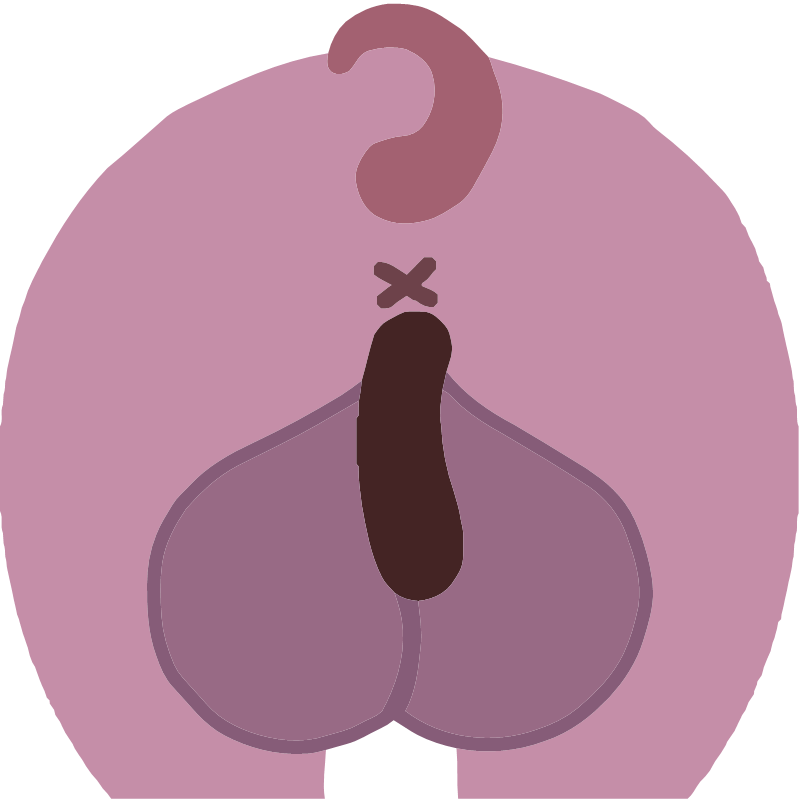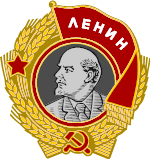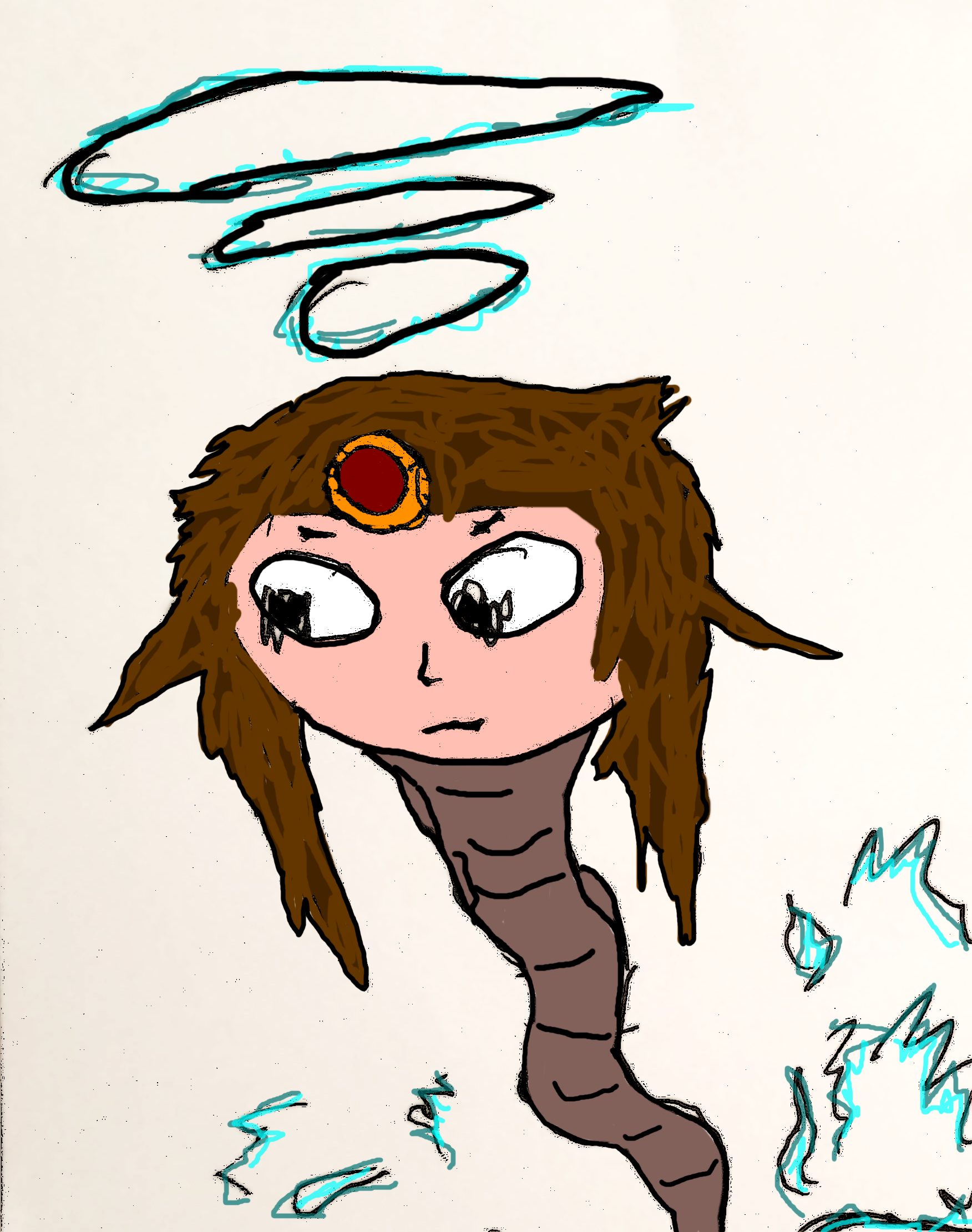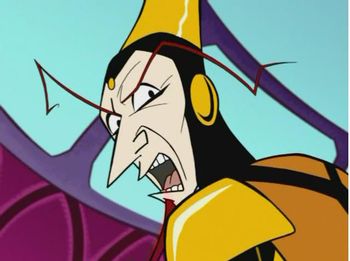I believe in socialism, but I feel Stalin shouldn’t be idolised due to things like the Gulag.
I would like more people to become socialist, but I feel not condemning Stalin doesn’t help the cause.
I’ve tried to have a constructieve conversation about this, but I basically get angry comments calling me stupid for believing he did atrocious things.
That’s not how you win someone over.
I struggle to believe the Gulag etc. Never happened, and if it happened I firmly believe Stalin should be condemned.
He killed communists and became the poster boy of red scare, hurting the progress of socialism by decades
Me to other Communists: Stalin was a complex character who did make mistakes, went too hard on some stuff and not hard enough on others, but overall was a force for good, and I can never fault him for leading the USSR in defeating the Nazis.
Me to libs: You will not talk badly about uncle Joe Steel, ender of the holocaust, killer of fascists, beacon of hope to the global south.
I would like more people to become socialist, but I feel not condemning Stalin doesn’t help the cause.
Constantly repudiating historical socialists for being the wrong type of socialist hurts the cause far more, and is exactly what the feds want you to do.
Yeah, I feel the same towards Stalin as I feel towards most figures and places that have been relentlessly smeared by Cold War and Red Scare propaganda.
And that is that the entire reason these figures are so viscously demonized is because capitalism cannot survive the threat of a good example. The ruling class needs the most radical allowable criticism of their system to be, “Sure, we have many faults, but all of the alternatives are far worse so you better not dare even thinking about fighting for positive change.”
That narrative can only function if every victory of the global proletariat is smeared as a dystopian hellscape ruled by cartoon villains. And I don’t think it’s to our benefit to cede that rhetorical ground wholesale out of fear that challenging it might be unpopular among Cold Warriors.
real lol, good post!
Good: industrialized a poor country under extremely difficult conditions, maintained the integrity of the socialist project, defeated the Nazis, supported China and the DPRK
Bad: forced relocation of ethnic minorities, imposed sedentism on nomadic and semi-nomadic groups, betrayed and isolated Yugoslavia
Wrong. Read books
Good idea, tactless execution. When someone comes to us asking questions with an open mind, being condescending like this could turn them away.
I want a discussion. It shouldn’t be that hard to explain.
I’m not going to convince you of Christianity by saying.
Wrong, go read the bible. It’s not that simple.
Comparing theological work to historiographical work is a logical fallacy.
Asking for a discussion of a topic one is ignorant on isn’t asking for to be persuaded on it, its asking for opinions that may or may not be correct then cherry picking the answers that best suit one’s biased perspectives.
Asking you to do the most barest amount of research on a complex topic before trying to engage in it is to do you a favor of giving you the opportunity to arm yourself with concrete knowledge that you can then concretely be compare and contrast to the knowledge of others instead of asking for ephemeral platitudes that are fluffed to appear full in content but will starve your mind of substance
They’re inviting you to read history, not claims of the supernatural. Most of us arrived at our more reasonable assessments of the Stalin administration by studying mature works of history. If you are expecting somebody to spend only a couple minutes refuting decades of Cold War propaganda then you are unlikely to find much help anywhere.
I just wanted a discussion or good starting point Cowbee has already provided that
I do recommend reading the history books provided, however. I fully back what my comrades here have suggested, and don’t want to take away from their inputs on the matter. Rather, I endorse them, and think the idea of comparing theology to history when it comes to the notion of research is rather rude.
I think that simply saying “wrong” was rude as well; responses like that can alienate people.
Your top-level comment is a great example of how it should be done 🙂
While I agree, I don’t fault comrades for being short of patience when combatting the same mistaken notions repeatedly. I take breaks frequently from Lemmy as a consequence.
he was s power hungry megalomaniac that felt no shame in killing anyone who crossed him
When you get your politics from Marvel movies
The man tried to resign four times. It always was denied.
Trotsky and Bukharin constantly crossed him and he let them until hey tried to murder him. Hell, he defended Bukharin even then.
In short you are off by several universes.
70% good 30% bad
Care to elaborate?
This was said by Deng Xiaoping about Mao regarding the mistakes of the Great Leap Forward and the Cultural Revolution. It is the official party line of the CPC.
Me and others think it fits well with Stalin
He had a really big spoon.
Not a great socialist
stalin was a good guy who was doing his best
The gulag system was infinitely more humane than America’s prison system. They weren’t death camps, it’s difficult to understand what the stigma around them is other than the fact that they have a spooky Russian name. Prisoners were paid a full wage, and were permitted to leave the prisons for short times.
Not worthy of his role. Not nearly smart enough, surely not intellectually honest enough to reject a lifelong position of leadership as a mean to pursue world equality.
Somebody Lenin himself did not want to see in that position.
This is ahistorical.
First, Stalin evidently was intelligent. He wasn’t a genius, but he was consistently proven to know what he was talking about. See his interview with H.G. Wells.
Secondly, Stalin did try to reject his position, even desiring to have his position itself permanently liquidated. Archival evidence and records show he tried to resign no fewer than four times, all rejected.
Thirdly, there is no actual evidence that Lenin was opposed to Stalin, the anger Lenin felt towards Stalin towards the end of his life was due to Stalin’s treatment of Lenin’s wife. Additionally, Stalin was democratically elected, the Soviet Union was not a monarchy. Regardless of who Lenin may have wished to succeed him, Stalin was elected, and furthermore one of his attempted resignation attempts was over this spat with Lenin over treatment of his wife in Lenin’s final days (which, again, was rejected).
Stalin was no saint, he made numerous mistakes and was frequently socially reactionary, but it is important to place him in a correct historical context and separate fact from fiction. Moreover, you offer no indication how someone replacing him would help “pursue world equality,” whatever that means. Marxism to begin with rails against the idea of equalitarianism, prefering the concept of “from each according to his ability, to each according to his work,” and eventually substituting “work” with “needs” as the productive forces become capable of accomodating such organization.
That was my opinion according to the sources I have been exposed to. I’m glad to deepen my understanding on the matter, I’ll just point out that in the history of mankind most leader pushed to stay in power, when they were meant to step down, and stayed in power when the choice was purely up to them.
Isn’t it weird that the rejections were unanimous? Don’t you think there may have been a certain, I don’t know… Hesitation into suggesting they found the head of state not fit for the role?
As I said, I’ll look better into it, but I am not currently convinced Stalin was an exception to the trend that affected most of the highest ruling class through history.
Stalin wasn’t an exception himself, the Soviet system of democracy is, which coincides with other AES states. It allowed more democratic and meritocratic methods of selecting candidates. Stalin personally seemed to want nothing more than to retire to a quiet post, free from the sheer amount of responsibility placed on his shoulders. This does not make him some virtuous figure, he had genuine, selfish desires of living out the rest of his days in a more peaceful manner. This is only further proven by his paranoia. It’s difficult to comprehend the amount of stress he was in.
Moreover, Stalin was not “ruling class.” He was only the “ruling class” with respect to the fact that the proletariat was in control. Such a confusion of government figures as uniquely non-proletarian flies in the face of Marxism itself, which sees class as relations with respect to the Mode of Production. Having a government and central planning is a key aspect of Marxian Communism.
Old habits die hard. I meant people with a lot more power than the other people.
I’m aware, my point is that I believe your analysis of power with respect to ideas of “corruption” don’t actually follow when applied to alternative modes of production. Capitalism naturally selects for those Priests of Capital that best serve its alien interests in profit and accumulation, as those who do not do so end up cast aside. Capital is a fickle god.
On the other hand, under a Socialist system, Humanity becomes supreme to Capital. “Power” in a Socialist system comes with far less excess wealth compared to Capitalist systems, and moreover the ties to accumulation just don’t exist as the driving factor of a centrally planned economy. What this means is that leaders of AES are frequently in it more out of ideological reasons, rather than personal enrichment.
You seem to conflate power with money.
I don’t think there’s many way to be more powerful than holding power in a society where the different access to goods are irrelevant.
You think ambition fueled by money are more powerful than the ones fueled by idealism, purity, rightfullness and, of course, narcissism and domination?
Do you really think it’s all the same to those people, to Stalin himself, if he was farming potatoes or signing the 5 year plan under oh-so-genuine thundering applause of the assemply?
Come the fuck on.
I tie “pursuit of power” to actual, mechanical drives. What is the purpose of power? Why do you believe humans pursue it? I quite specifically mentioned that Capitalism itself selects for those in power within it by selecting the most ruthless and willing to do whatever it takes to accumulate the most, because the system requires it. Socialism does not, ergo you need to justify a “pursuit of power.”
Secondly, I want to know where you are getting the notion that Stalin was not popular among his peers. Rather, he became more popular until the “Secret Speech,” where Kruschev attempted to delegitimize Stalin in pursuit of his own interests. I think you would do best to read some of the books listed here by other comrades.
Stalin attempted to step down multiple times and was talked out of it by party members. Now, there’s a criticism to be made that the party worked the way it did, but if that’s your level of historical knowledge you’re certainly not the one who can make it.
Somebody Lenin himself did not want to see in that position.
this is a myth
He was mostly alright, but his significance really comes from popularizing and formulating what is now known as Marxism-Leninism.
As a result of mounting internal and external pressure, as well as the power-struggle following Lenin’s death, Stalin had to make countless concessions to deal with problems that could not be avoided.
Because of his role leading a country that was led into, and greatly harmed by war (tens of millions of deaths as a result), it can be very challenging to get an appropriate critique and analysis of his role. You are not going to find any example of peaceful revolution, nor will you find any examples of countries in a state of war that can grant complete freedom and liberty.
I defend him to the extent that he led a struggle against European fascism, and I defend him against accusations that Marxism and fascism are the same. Going so far to condemn Stalin generally has a tendency to grant a certain level of forgivenes and apologia for fascists and their collaborators, as well as a wide assortment of reactionaries and nationalists.
When it comes to people who would be identified as “Stalinists”, usually what is meant is something more similar to what we would call National Bolsheviks (NazBols). If not that, then in reference to the tendency of certain Marxist-Leninist groups to justify social conservatism, petty nationalism, and premature centralization.
One thing I’d like to touch on: the experience of the Bolsheviks told us that we need unity of Marxists, where we exclude the distorters of Marx. If you want to be a Marxist, you need Marx - no way around that. Stalin had to read Marx’s major works, Lenin did so and more, and so did Trotsky, Luxembourg, even Kautsky and Bernstein.
Any major revolutionary figure is going to be smeared and distorted for someone else’s gain. People still hate Robespierre, for instance, and people still try to rewrite the narrative of people from Nat Turner to Huey P. Newton - Stalin was no different. You don’t have to defend him at all, nor do you have to condemn him (or any other historical figure), but you should at least understand the real Stalin and understand that the USSR was born out of the ashes of the Russian Empire - generally for worse as we came closer and closer to its dissolution. If you don’t care to catch the full story, you are going to be clueness when it comes to any revolutionary movement across the Americas, especially the US. You can try to overcorrect or overly emphasize how much you don’t like Stalin, if you’d like, but remember that Stalin’s opposition and the leftists who opposed the initial October Revolution were well on their way to make mistakes in the complete opposition direction - equally as harmful and destructive. That doesn’t make you superior, it makes you blind. Stalin’s errors were far from the only possibility.
It could’ve went way worse, or it could’ve been far better off - which would you prefer?
Wasn’t Stalin a communist dictator? We aren’t looking for communism or a dictatorship. Claiming otherwise is just misleading.
We aren’t looking for communism

Stalin was a Communist leader of the USSR. He was not a dictator according to the CIA. Moreover, the idea that Socialists do not seek Communism is a bit strange, the two most major camps of Socialism are Marxism and Anarchism, neither of which has “Socialism” as an end goal. Anarchists seek direct implementations of full horizontalism and decentralization out of the shell of the old, so to speak, while Marxists seek full public ownership and central planning, ie they wish to implement Communism.
The idea of a stagnant, static, never-changing system is foreign to the overwhelming majority of Socialist ideologies, ergo it must continue to advance. This advancement in my opinion is of course going to be Communism.
Finally, the hammer and sickle is the symbol of Marxism-Leninism and the Soviet Union, which is used as the symbol for this community. You yourself do not need to support them, but using the term we in doing so is silly.
I call myself a socialist but do not support a full horizontalism or full decentralization. I support partials of both.
I do believe that optimizations for quality of life and value and stability are rarely at the ends of the spectrums, but sometimes somewhere in the middle and subjective to democratic agreement and changing based on reality.
I want my system to be flexible to have times of more centralization, times of decentralization, times of horizontality, times of independent nodes, etc.
Why is it that you believe the correct answer is “in the middle?” Moreover, why do you believe that you can simply stop the progression towards full public ownership, and therefore full centralization, assuming productive forces continue to develop? The point of Marxism is that there is no such thing as a stagnant system, and competition within markets further results in centralization, paving the way for public ownership to be superior.
I don’t think I’d be “stopping” the progression, just that the progression is not towards some absolute idealistic end. (and to note in my ideal system, my individual ideals are secondary to the populations average), just that the natural maximum optimization, say of organizations type, an amount of organizations would be publicly controlled by a government, and an amount would be controlled by the employees themselves in a coop structure.
I think this makes sense as there will likely be products that a niche set of people want, but is not at such a scale that the government and the people behind it would want to dedicate collective resources towards it directly.
Fundamentally I believe the uniqueness and fickleness of people I believe will always outpace any collective structure, and so allowing for that to be represented in a society is key to success, and that entails organizations outside of collective-control which rely on consensus.
I do want a socialist system were all shares of an organization are either public ally owned or owned by the employees themselves, with no rent seeking capitalists involved.
Out of curiosity, have you read Marx? Much of what you’re saying goes against standard Marxist consensus. As an example, cooperatives are not “Marxist,” they allow accumulation despite eliminating bourgeois exploitation of proletarians. To that extent, they also must retain money, and trade, which becomes superfluous in the context of the rest of a Socialist society that would rather be fully planned.
Moreover, you are separating the idea of “government” from the “people” in a manner that confuses what Communism would actually look like. In retaining private property, you retain the conditions for Capitalism to emerge, and you retain groups that potentially stand at odds with the interests of the rest of the economy. This is why Public Ownership and Central Planning becomes superior to market-based systems once the productive forces have reached sufficient levels of development, and why Marxists say a system like that which you describe would eventually turn into Communism anyways as it works itself out to be more efficient.
If you want a starter guide, I recommend my own introductory Marxist reading list.
I have not yet, but i do plan to, thanks for the reading list, I will check into it.
At least at the moment and from what I know so far, I do not identify or align with Marxism or Communism, I do with socialism and i do not view socialism as some half step.
What do you say in response to the notion that no system is static, and ergo is either moving towards full public ownership and planning or is regressing? Markets have a tendency to centralize in order to combat a tendency for the rate of profit to fall, which leads to inefficiencies. At some point, these markets coalesce into syndicates with internal planning, at which point it becomes far more efficient overall to fold them into the public sector. There remains no use for said markets.
To me, the statement that markets will always remain useful in some aspect, same with private property, sounds similar to saying feudalism will always have some use, and even slavery. At some point markets will fade into obsolescence much the same way older modes of production did, alongside advancements in technology and production, same as what happened to feudalism and slavery.
Right, communism and socialism aren’t the same thing though, why are you conflating them? Regardless of sillyness.
Before Marx, the term communism was used by many utopian socialists to describe an idealist, egalitarian society.
Its modern usage is almost always traced back to Karl Marx’s usage of the term where he introduced the concept of scientific socialism alongside Friedrich Engels. The theory of scientific socialism described communism not as an idealistic, perfect society but rather as a stage of development taking place after a long, political process of class struggle. Marx, however, used the terms socialism and communism interchangeably and he drew no distinction between the two.
Lenin was the first person to give distinct meanings to the terms socialism and communism. The socialism/communism of Marx was now known simply as communism, and Marx’s “transitional phase” was to be known as socialism.
Prolwiki > Communism > Etymology
So yes, there is a distinction between the two, but I have a feeling this isn’t the distinction you were referring to.
Could you be talking about Social Democracy? Because, that’s not socialism, or communism. If you’re interested in this distinction presented by Lenin, you might want to read Chapter 5 of The State and Revolution.
I have some reading to do, thank you for pointing me in the right direction! This is great!
Anytime comrade!
Socialism, in my opinion, inevitably leads towards Communism if maintained. What matters is which has supremacy, Capital, or Humanity. I am not conflating them, but pointing out that Socialism, in the eyes of Marxists, is simply pre-Communism.
That makes sense! Thank you! I suppose communism can be seen as extreme socialism, in a way.
(I had to block some trolls before I found your comment, sorry for the slow response.)
Sort of. Socialism is simply when public ownership becomes the dominant and driving factor of an economy, typically marked by human supremacy over Capital, rather than the reverse. Since markets naturally centralize, they develop unique forms of planning suitable for their industries and sectors, paving the way for public aquisition and planning. Socialism trends towards full socialization, at which point classes cease to exist and as such class oppression ceases to exist, and “money” becomes superfluous, as there is no trade between institutions.
I think any extreme is probably a bad situation. Thank you for clarifying! I’ve got some thinking to do now.
Why is an extreme a bad situation? What if said extreme was an eradication of poverty? Eradication of racism? Extremes are not inherently superior to moderatiom, nor is the reverse true.
If you want a reading list, I have one linked on my profile.
Historically speaking, socialism and communism are terms that are synonymous and interchangeable.
That is certainly not the case today, but the disagreement over terminology largely comes about as a result of state led suppression of communists and Red Scare tactics. As it became more dangerous to identify oneself as a communist the result was that it became more desirable/safer to identify as a socialist and also to argue that socialism was distinct from communism.
And while I’m no linguistic prescriptivist and I recognize that semantic drift happens to nearly all terminology over a long enough time frame, the issue with this changing definition is that it does not come out of any theoretical grounding or ideological framework. It is a reaction to external pressure, and that reaction by different groups and different peoples leads to the situation today where there is very little agreement or consensus regarding what people are referring to when they use these terms. They have been effectively rendered useless for the purposes of political discussion unless you first begin with a lengthy preamble about how you personally define these terms.
One popular way of making this distinction is the framing that Lenin used. He described socialism in terms of the international class struggle in the epoch of imperialism (the epoch we were currently living through). The jist is that the communist theory of “The State” is that it is definitionally an organ of class domination/class warfare. It is the instrument through which one set of class interests are enforced upon the rest of society, and during the epoch of imperialism that instrument of capitalist class domination is wielded on a global scale. Therefore, any communist party seeking to put an end to the tyranny of the capitalist class will necessarily need a plan for opposing the counter-revolution of the capitalist class and the inevitable sabotage, acts of war, and attempts of the re-domination of the working classes during the epoch of imperialism.
In other words, the working classes would require their own state organ to enforce the interests of the working classes and protect against capitalist reaction and domination. If we are talking about this in terms of the common framing of the “endpoint” of communism being a “stateless, classless” society*, the argument goes that you cannot immediately jump to a stateless society so long as capitalism still has a stranglehold over the majority of the world and imperialist nations are still empowered to wage class warfare across the globe.
This analysis of the strategy and tactics required for the liberation of the working class was referred to as socialism by Lenin. So in this framework, Socialism is the strategy a communist party uses on the path to communism. If you would like to argue that a communist party working towards communism is meaningfully distinct from being communist, you are free to do so. But the distinction is quite slim.
On the other end of the spectrum, you have people inside the imperial core who describe themselves as socialists, or more commonly democratic socialists, and what they mean when they call themselves socialist is, “I want the system to remain relatively unchanged, but we should distribute the fruits of our country’s imperial plunder more equitably by petitioning the capitalist state to administer more welfare and social programs such as universal healthcare.”
This variety of socialist has very little relation to the historical usage of the term, and comes about much more directly as a result of that Cold war/red scare reaction I mentioned above. I would argue that this kind of socialism is little more than a rebranding of liberalism, but that certainly qualifies it as being distinct from communism.
On this forum at least, if you see someone talking about socialism they are much more likely to be using a definition closer to the first definition than the second one.
(*The framing of communism as a stateless, classless, moneyless society is a very sloppy framing, but is sufficient for this discussion)
Thank you for clarifying! I see how those perspectives can be difficult to understand with how similar they seem on the surface. I appear to have been taught a slightly different concept than most people here, if I understand correctly.
I have some thinking to do, I really appreciate the help. Thank you!
That is cold war / anti-communist propaganda, which capitalists and the media that they own will never stop propagating, because capitalists are definitionally anti-communist.
Even in Stalin’s time there was collective leadership. The western idea of a dictator within the communist setup is exaggerated. Misunderstandings on that subject are caused by lack of comprehension of the real nature and organization of the Communist power structure. Stalin, although holding wide powers, was merely the captain of a team and it seems obvious that Khrushchev will be the new captain.
Second Thought: We Need To Talk About “Authoritarianism”
(Sorry for the stupid question, I only know what I’ve been taught in school.)
If it wasn’t authoritarian or a dictatorship, why’d they build those absolutely giant statues? Just a democratic flex?
Why did “they” build Mt. Rushmore or the Lincoln Memorial?
I’m afraid I don’t know. The people under Stalin’s rule, obviously.
under Stalin’s rule
You are still speaking from the cold war framing of Stalin being a dictator and not an elected official who tried to step down multiple times.
Joseph Stalin was elected as the General Secretary of the Central Committee of the CPSU in April 1922 during the 11th Congress of the Party. Between then and until his death, he asked to be relieved of his duties as General Secretary a total of four times — all of which were rejected.
That’s one weird situation

What’s this? A recommendation?
It would be a good thing for you to read. More lenin is good for everyone
I’ll have a look! Thank you!

This comically evil understanding of the Soviet prison system is based off only a handful of unreliable sources.
Robert Conquest’s The Great Terror (published 1968) laid the groundwork for Soviet fearmongering, and was based largely off defector testimony.
Robert Conquest worked for the British Foreign Office’s Information Research Department (IRD), which was a secret Cold War propaganda department, created to publish anti-communist propaganda, including black propaganda; provide support and information to anti-communist politicians, academics, and writers; and to use weaponized information and disinformation and “fake news” to attack not only its original targets but also certain socialists and anti-colonial movements.
He was Solzhenytsin before Solzhenytsin, in the phrase of Timothy Garton Ash.
The Great Terror came out in 1968, four years before the first volume of The Gulag Archipelago, and it became, Garton Ash says, “a fixture in the political imagination of anybody thinking about communism”.
- Andrew Brown. (2003). Scourge and poet
Aleksandr Solzhenitsyn’s The Gulag Archipelago (published 1973), one of the most famous texts on the subject, claims to be a work of non-fiction based on the author’s personal experiences in the Soviet prison system. However, Solzhenitsyn was merely an anti-Communist, Nazi-sympathizing, antisemite who wanted to slander the USSR by putting forward a collection of folktales as truth.
Anne Applebaum’s Gulag: A history (published 2003) draws directly from The Gulag Archipelago and reiterates its message. Anne is a member of the Council of Foreign Relations (CFR) and sits on the board of the National Endowment for Democracy (NED), two infamous pieces of the ideological apparatus of the ruling class in the United States, whose primary aim is to promote the interests of American Imperialism around the world.
However, in contrast to these depictions, we have this interesting report produced by the CIA regarding the nature of the gulags, or “Forced Labor Camps” as they describe them. Let’s take a second to note that this year, California voted to uphold their forced labor practices in the state, and that the US still maintains constitutionally protected forced labor as a form of punishment.
A 1957 CIA document [which was declassified in 2010] titled “Forced Labor Camps in the USSR: Transfer of Prisoners between Camps” reveals the following information about the Soviet Gulag in pages two to six:
- Until 1952, the prisoners were given a guaranteed amount food, plus extra food for over-fulfillment of quotas
- From 1952 onward, the Gulag system operated upon “economic accountability” such that the more the prisoners worked, the more they were paid.
- For over-fulfilling the norms by 105%, one day of sentence was counted as two, thus reducing the time spent in the Gulag by one day.
- Furthermore, because of the socialist reconstruction post-war, the Soviet government had more funds and so they increased prisoners’ food supplies.
- Until 1954, the prisoners worked 10 hours per day, whereas the free workers worked 8 hours per day. From 1954 onward, both prisoners and free workers worked 8 hours per day.
- A CIA study of a sample camp showed that 95% of the prisoners were actual criminals.
- In 1953, amnesty was given to 70% of the “ordinary criminals” of a sample camp studied by the CIA. Within the next 3 months, most of them were re-arrested for committing new crimes.
- Saed Teymuri. (2018). The Truth about the Soviet Gulag – Surprisingly Revealed by the CIA
In terms of scale, Solzhenitsyn estimated that over 66 million people were victims of the Soviet Union’s forced labor camp system over the course of its existence from 1918 to 1956. With the collapse of the USSR and the opening of the Soviet archives, researchers can now access actual archival evidence to prove or disprove these claims. Predictably, it turned out the propaganda was just that.
Unburdened by any documentation, these “estimates” invite us to conclude that the sum total of people incarcerated in the labor camps over a twenty-two year period (allowing for turnovers due to death and term expirations) would have constituted an astonishing portion of the Soviet population. The support and supervision of the gulag (all the labor camps, labor colonies, and prisons of the Soviet system) would have been the USSR’s single largest enterprise.
In 1993, for the first time, several historians gained access to previously secret Soviet police archives and were able to establish well-documented estimates of prison and labor camp populations. They found that the total population of the entire gulag as of January 1939, near the end of the Great Purges, was 2,022,976. …
Soviet labor camps were not death camps like those the Nazis built across Europe. There was no systematic extermination of inmates, no gas chambers or crematoria to dispose of millions of bodies. Despite harsh conditions, the great majority of gulag inmates survived and eventually returned to society when granted amnesty or when their terms were finished. In any given year, 20 to 40 percent of the inmates were released, according to archive records. Oblivious to these facts, the Moscow correspondent of the New York Times (7/31/96) continues to describe the gulag as “the largest system of death camps in modern history.” …
Most of those incarcerated in the gulag were not political prisoners, and the same appears to be true of inmates in the other communist states…
- Michael Parenti. (1997). Blackshirts & Reds: Rational Fascism and the Overthrow of Communism
This is 2 million out of a population of 168 million (roughly 1.2% of the population). For comparison, in the United States, “over 5.5 million adults — or 1 in 61 — are under some form of correctional control, whether incarcerated or under community supervision.” That’s 1.6%. So in both relative and absolute terms, the United States’ Prison Industrial Complex today is larger than the USSR’s Gulag system at its peak.
Regarding the “death rate”, In peace time, the mortality rate of the Gulag was around 3% to 5%. Even Conservative and anti-Communist historians have had to acknowledge this reality:
It turns out that, with the exception of the war years, a very large majority of people who entered the Gulag left alive…
Judging from the Soviet records we now have, the number of people who died in the Gulag between 1933 and 1945, while both Stalin and Hitler were in power, was on the order of a million, perhaps a bit more.
- Timothy Snyder. (2010). Bloodlands: Europe Between Hitler and Stalin
(Side note: Timothy Snyder is also a member of the Council on Foreign Relations)
This is still very high for a prison mortality rate, representing the brutality of the camps. However, it also clearly indicates that they were not death camps.
Nor was it slave labor, exactly. In the camps, although labor was forced, it was not uncompensated. In fact, the prisoners were paid market wages (minus expenses).
We find that even in the Gulag, where force could be most conveniently applied, camp administrators combined material incentives with overt coercion, and, as time passed, they placed more weight on motivation. By the time the Gulag system was abandoned as a major instrument of Soviet industrial policy, the primary distinction between slave and free labor had been blurred: Gulag inmates were being paid wages according to a system that mirrored that of the civilian economy described by Bergson…
The Gulag administration [also] used a “work credit” system, whereby sentences were reduced (by two days or more for every day the norm was overfulfilled).
- L. Borodkin & S. Ertz. (2003). Compensation Versus Coercion in the Soviet GULAG
We can comb over the details all you want, but I don’t think you care about the details. You are looking to reinforce your own personal bias, not correct it. You are not taking an objective and materialist view of history regarding the Stalin era of the USSR. Not even, at a minimum, drawing comparisons between the prisons in the Soviet Union and the current for-profit systems that exist today in America.
All this effort in this post will go on to be wasted, I feel. I do it, though because your post will attract others with similar questions, and hopefully those more willing to deprogram themselves will read it and do more investigating.
You’re not going to build a socialist movement if you build it off the back of Cold War era red scare propaganda. You came to us with a simple question, and to fully understand the answer, you need to read more and deprogram yourself.
GOOD post!
 great post!
great post! 11·1 day ago
11·1 day agoUntil 1954, the prisoners worked 10 hours per day, whereas the free workers worked 8 hours per day. From 1954 onward, both prisoners and free workers worked 8 hours per day.
While he is at this labor, the convict works under the same conditions, and with the same protections that he would enjoy in outside labor. His hours are seven or eight a day, depending upon the nature of his work
Did it change between 1935 and 1954? Are Callcott and the CIA talking about different things? Genuine question, I wish to know.
So I think the CIA is talking about specific camps, and it could be possible that these camps were operating different working hours, but maybe what Callcott is describing is an average or generalized notion of an eight-hour day across the entire system. From the first page of the CIA report, section (2), subsection (a), it states:
Forced Labor Camps ia the USSR: This six-page report provides detailed information on the organization of labor camps and on working and living conditions in camps the area of Bratsk (N 56-02, E 101-4O) and Tayshet (N 55-57, E 96-02) in Irkutsk Oblast. The bulk of this information concerns Ozerlag, [ REDACTED ] Other camps described In the report are Kraslag near Tayshet, Minlag in the Vorkuta area, and Vyatlag rear Verkhne-Kansk in Kirov Oblast.
So these camps might have been operating 10 hours days for a reason, and then changed that policy later.
From my limited understanding Stalin tried to change things too fast. A comparison that would piss everyone off is like Elon Musk going all-in on robotics in an underdeveloped country.
In the long term Stalins policies paid off, but a lot of people starved because as it turns out putting all your points in technology means you don’t have farms.
Gulagging bourgeoisie also isn’t bad per se. But Stalin definitely sacraficed innocent people in the crossfire.














